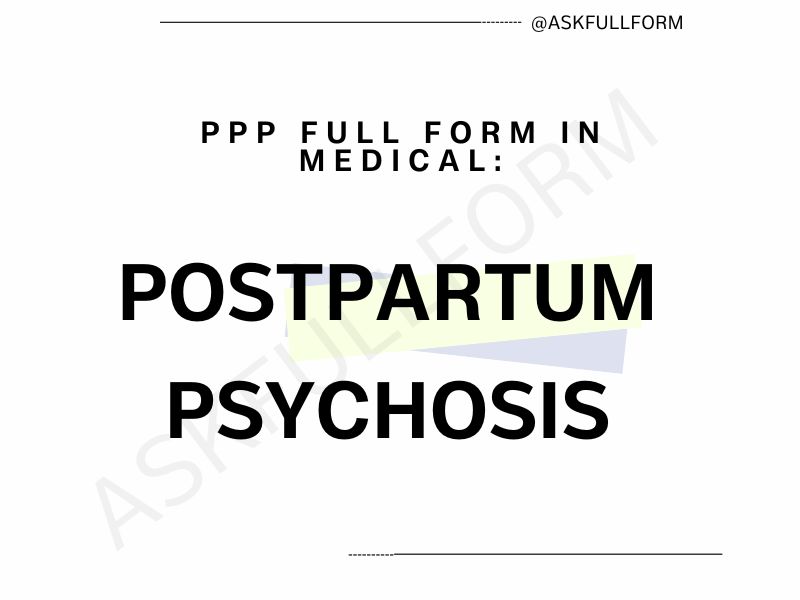
PPP in Medical stands for Postpartum Psychosis.
What is Postpartum Psychosis?
- Postpartum psychosis is a severe mental health condition affecting some women after childbirth.
- It’s much more serious than the “baby blues” many women experience.
- Symptoms include hallucinations (seeing or hearing things that aren’t there), delusions (false beliefs), severe mood swings, and confusion.
Warning Signs
- Dramatic mood changes: Extreme highs and lows, agitation
- Hallucinations or delusions
- Disorganized thoughts and speech
- Severe sleep problems
- Paranoia and suspiciousness
- Behaviors that seem out of character or dangerous
It’s a Medical Emergency
- Postpartum psychosis usually begins suddenly, within days or weeks of giving birth.
- Seek immediate medical help if you or someone you know is experiencing these symptoms.
Risk Factors
- History of bipolar disorder or schizophrenia
- Previous episode of postpartum psychosis
- Family history of these mental health conditions
- Other factors like sleep deprivation or stressful life events can play a role.
Treatment is Vital
- Treatment almost always requires hospitalization to ensure safety.
- It typically involves:
-
- Medications to stabilize mood and manage psychosis
- Therapy for both the woman and her family
- In severe cases, electroconvulsive therapy (ECT) may be used
Support for Families
- Postpartum psychosis affects the entire family.
- Loved ones need education about the condition to provide the best support.
- Counseling can help partners and family members cope.
- Focus on self-care—loved ones need to care for themselves in order to provide support.
Resources and Hope
- Support groups: Connect with others who understand (Postpartum Support International: https://www.postpartum.net/)
- Crisis Hotlines: https://www.vandrevalafoundation.com/), or resources specific to your location]
- Recovery is possible: With the right treatment, most women with postpartum psychosis make a full recovery.
Important Notes:
- Safety First: If you’re concerned about the safety of a mother or her baby, get immediate help.
- Prevention: Women with high-risk factors might discuss preventative strategies with their doctor during pregnancy.
- Future Pregnancies: Talk to your doctor about managing risk if you have a history of postpartum psychosis and are considering having another child.
